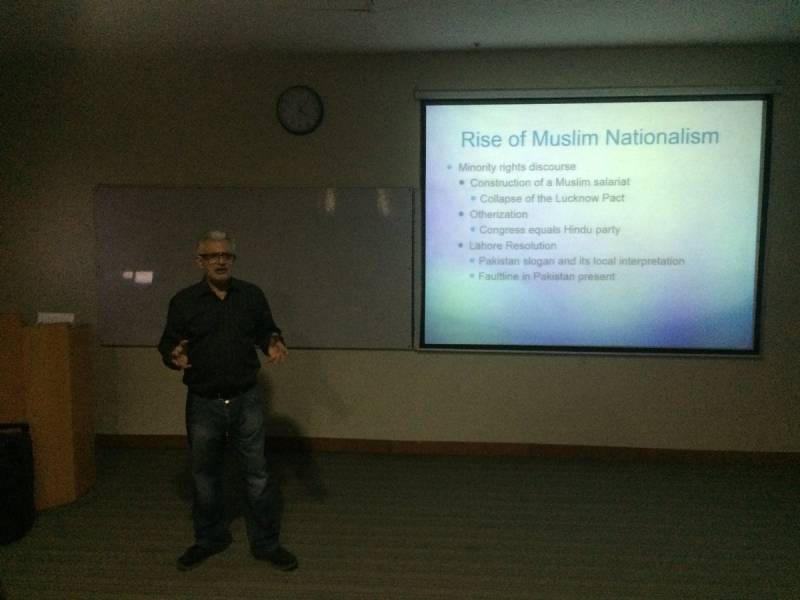LAHORE: Pakistan has already gone through one bloody and painful division, and so the time has come for us to negotiate our mutual existence and shun the way of violence to achieve national unity.
This was stated by Yunas Samad, Professor of South Asian Studies at Bradford University UK who spoke at the Centre for Governance and Policy, ITU yesterday.
Dr Samad traced the history of Pakistan through the lens of 'Minority Rights to ‘Majoritarianism’.
He argued that 'Muslim Salariat, (the educated and professional Muslims) were the ones who led the movement for the creation of Pakistan, while the bulk of the Muslim peasantry, though engaged at a later stage, remained on the margins of the political discussions of the time.
The Pakistan then created by this Muslim Salariat emerged out of a minority rights discourse, and focused on a broad rights based platform.
However, once Pakistan was created the Muslim Salaraiat became overtaken by an Urdu speaking Salariat, which left its focus on rights and began talking about 'parity' because now the discourse was between Muslims but of different ethnicities between East and West Pakistan.
Professor Samad then described how in the aftermath of the separation of East Pakistan in 1971, this Urdu speaking Salariat becomes transformed into Punjabi Salariat, which further marginalised other voices.
In his talk, Dr Samad emphasised that state and nation building was not easy, but that whatever the solution, it has to come through an 'engaged citizenship' process.
“Citizens of the nation cannot be passive observers in their country, or else the state will be taken over by a few and the nation building process compromised,” he said.
He argued that there are only two ways of dealing with difference, killing all those who disagree, or negotiating a solution with them.
He noted that in the West a number of states have been built on the notion of killing all dissenters, ethnic-cleansing, pogroms and holocausts; however, real solutions only emerge through dialogue and discource.
"Giving Bengalis representation in all institutions would have changed their nature. This was unacceptable to some." Prof Yunas Samad.






